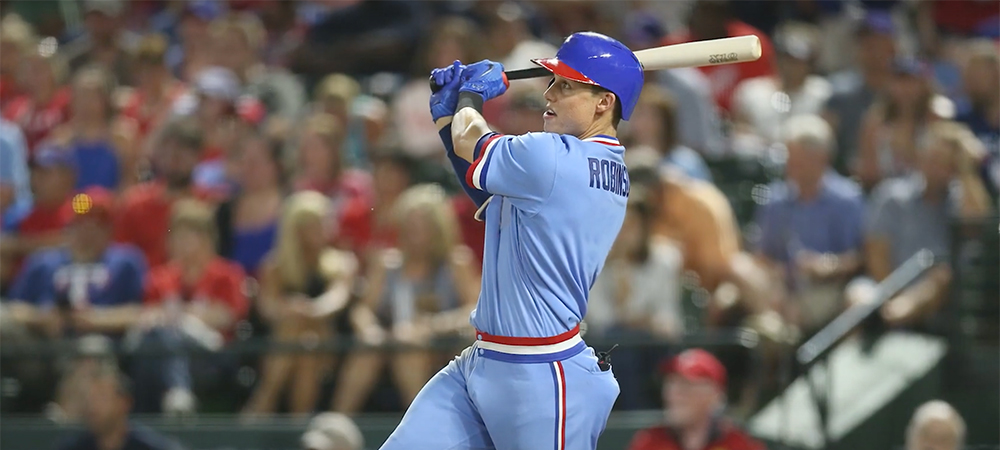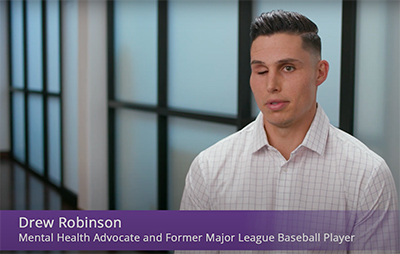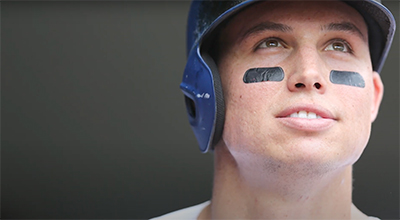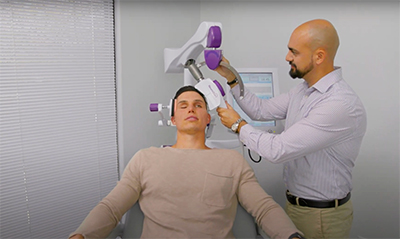Navigating Depression In Sports

Depression is a complicated illness that many athletes experience during their careers. Studies often convey the emotional and physical benefits of exercise, but mental illness can limit the extent to which athletes feel those benefits.

In this article, we share the latest research about the relationship between depression, anxiety, and sports. We also highlight Drew Robinson, who is a mental health advocate and former Major League Baseball player. Robinson opted for NeuroStar Advanced TMS therapy after a long struggle with depression.
If you or someone you love is experiencing symptoms of depression or anxiety, make sure they have the professional support they need.
What is the Relationship between Sports and Depression?
Although there are common symptoms of depression, it can manifest differently in each person. With this complexity, it makes sense why the relationship between sports and depression is difficult to name.

An article titled “Depression in Athletes: Prevalence and Risk Factors,” published in Current Sports Medicine Reports offers insight. Depression affects 6.7% of the US adult population and some research suggests that the rate of depression among athletes hovers around 5% (Wolanin et. al). This can be taken as a “good news” item that warrants more research: do athletes experience less depression than the average “nonathlete?” Does this statistic vary by sport, race, class, or gender?
Each year, sports injuries throw a ringer in the lives of many athletes. In one study, athletes who experienced a sports injury reported more symptoms of depression than uninjured athletes. There is also a concern for athletes in impact-heavy sports, such as football or soccer, since concussions can affect mental health too.
Some scientists fear that athletes are underreporting symptoms of mental illness, due to stigma and a desire to be seen favorably.
Common Symptoms of Depression
Depression is a mood disorder with several common symptoms. Symptoms may vary per individual and culture. If you or someone you know exhibits several of the symptoms here, get support. It is possible to feel better.
Common symptoms of depression include a persistent feeling of sadness or hopelessness, irritability, social withdrawal, loss of interest or pleasure in activities that previously brought joy, trouble thinking, trouble sleeping, unexplained physical problems, and frequent thoughts of death.
For professional athlete Drew Robinson, NeuroStar TMS therapy helped with depression
Drew Robinson was a Major League Baseball athlete who experienced severe depression throughout his life, especially during the first year of the pandemic. Before NeuroStar Advanced TMS therapy, Robinson shared that “depression made it hard to function as a professional athlete.”

When his depression hit a new low, Robinson attempted suicide. Somehow, he survived. Robinson learned he was a good candidate for NeuroStar TMS therapy and began scheduled treatments. Watch Drew Robinson tell his story to learn how he felt a difference after three weeks of NeuroStar TMS therapy.
Drew Robinson is now a full-time mental health consultant with the San Francisco Giants. He helps people every day by increasing awareness of depression and encouraging people to get the support they need.
NeuroStar TMS has helped many people who struggle with severe depression. To learn more about TMS, request an appointment in Redding or call (530) 221-7474 to speak with a healthcare professional.





